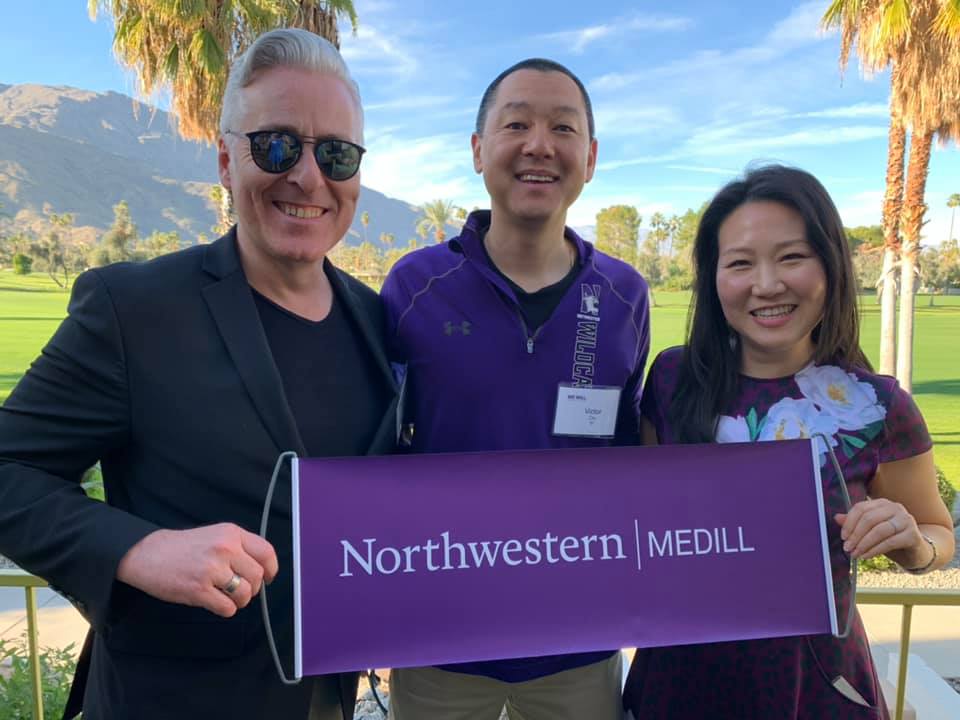
Category: Uncategorized


Photo by Andrew Skwish
Story by Thea Showalter (BSJ22)
Amidst a national crisis for local news organizations, Medill is seeking ways to save and strengthen the local news industry through the Local News Initiative (LNI), a groundbreaking project that aims to diagnose the challenges facing smaller news organizations and develop solutions.
For the past year and a half, Medill has collaborated with three newspapers, receiving hard-to-get data to analyze in exchange for providing the papers with crucial research on how to navigate the changing terrain of news media.
“LNI is developing new insights into reader behavior that is helping local news organizations grow their numbers of digital subscribers,” said Tim Franklin, senior associate dean of Medill and leader of the Local News Initiative. “This work is critically important now as local news organizations pivot from an advertising-supported business model to one focused on reader revenue.”
Newspapers have historically made the vast majority of their revenue from advertising, according to Associate ProfessorTom Collinger, Executive Director of the Medill IMC Spiegel Digital & Database Research Center. But as the habits of readers change, news organizations are increasingly depending on revenue from subscribers, not advertisers, leading to a pressing need to understand subscriber behavior.
In the fall of 2018, researchers from Medill’s Spiegel Research Center received 13 terabytes of subscriber data from its three partner papers— the Chicago Tribune, the San Francisco Chronicle, and the Indianapolis Star (Indy Star). The data would help the researchers probe questions about local news readership that had never before been answered.
“I’m especially proud that the analytical work that we have been doing is work that in many other industries would be easily available now online,” Collinger said.
But understanding local news subscriber behavior was far from easy. Researchers at The Spiegel Research Center had to merge two vast sets of data— subscriber data and clickstream data— to map how individual subscribers behaved when reading online.
In February of 2019, LNI came out with initial findings: in order to keep readers as digital subscribers, news organizations must encourage them to develop a regular reading habit and provide unique local content to make their subscription valuable.
Over the summer and fall of 2019, Franklin, along with Spiegel Research Center Director and Professor Ed Malthouse, presented LNI findings at the annual conferences for the Newspaper Association Managers, News Leaders Association, and Online News Association.
“We’ve gotten a whole lot of publicity on this,” said Malthouse. “It’s been very satisfying to see the work take off like this.”
For the Chicago Tribune, partnering with the LNI has provided an “outsider’s perspective” on audience data that, alongside the Tribune’s internal data analysis, has helped to “paint a broad picture of what content areas are the most valuable” to readers, said Christine Taylor, managing editor of audience at the Tribune.
The findings have shown the Tribune that its readers are “overwhelmingly” smartphone readers, prompting the Tribune to focus on its app in 2020, and explore tools to boost mobile engagement.
“It forces us to think about how we prepare and produce our content to meet those readers,” said Taylor. “It just makes us think differently about our deadlines— it makes us think differently about how we construct our stories. It’s really forcing the newsroom to just think very differently about how it approaches content.”
A year after the LNI began working with the subscription data, the LNI won a Google Innovation Award in October 2019 in order to build what is called a “subscriber engagement index,” a digital tool that will show local newspapers how their actions are impacting their subscribers in real time.
A newspaper that shares its data with the index will be able to see how its subscribers behave compared to other papers using various metrics, and how those behaviors contribute to retention and subscription rates.
“That’s where we’re going. We’re building this out as we speak,” said Collinger. “And it’s a significant piece of data work….The industry has never seen anything like this.”
In the next few months, LNI will also examine the “finances of customer retention,” said Malthouse. Finding strategies to encourage a reader to subscribe to a newspaper is only the first step.
“If you have a new customer, you have to nurture that relationship,” said Malthouse. “Teaching the news organizations how to take this new customer and nurture that relationship, and turn that person into a regular reader who values your content is the name of the game. So that, I think, is going to be a big part of where we go.”
Collinger added that Medill is uniquely qualified to lead the way on local news research, because the Local News Initiative is a product of all the programs that make Medill different.
“Medill uniquely has a world class journalism program and a world class integrated marketing communication program, and the integration of the best of those two things made this possible,” said Collinger. “It is not what makes Medill the same, but what makes us different in complementary ways that has allowed this to be such a wonderful expression of where we believe media is going.”
HappiNest

Judy Holland (MSJ86)
HappiNest explores a variety of challenges that arise when the house is suddenly empty or emptying, and Judy Holland provides tips and tools for managing the emotions and realities of this new life stage. Whether you’re seeking a renaissance in your romantic relationship, guiding a boomerang child at home, or figuring out how to handle an empty nest divorce, this HappiNest book and podcast are for you.
From dealing with friends and career transitions, to reconnecting with genuine interests and passions, this road map will help guide you. There are hills, valleys, thickets, briar patches, and ditches ahead, as well as waterfalls that resolve into pristine ponds. With mindfulness, hard work, and knowledge of experiences, research, and wisdom from seasoned empty nesters, you can create the most fulfilling phase of your life—and make the world a better place.
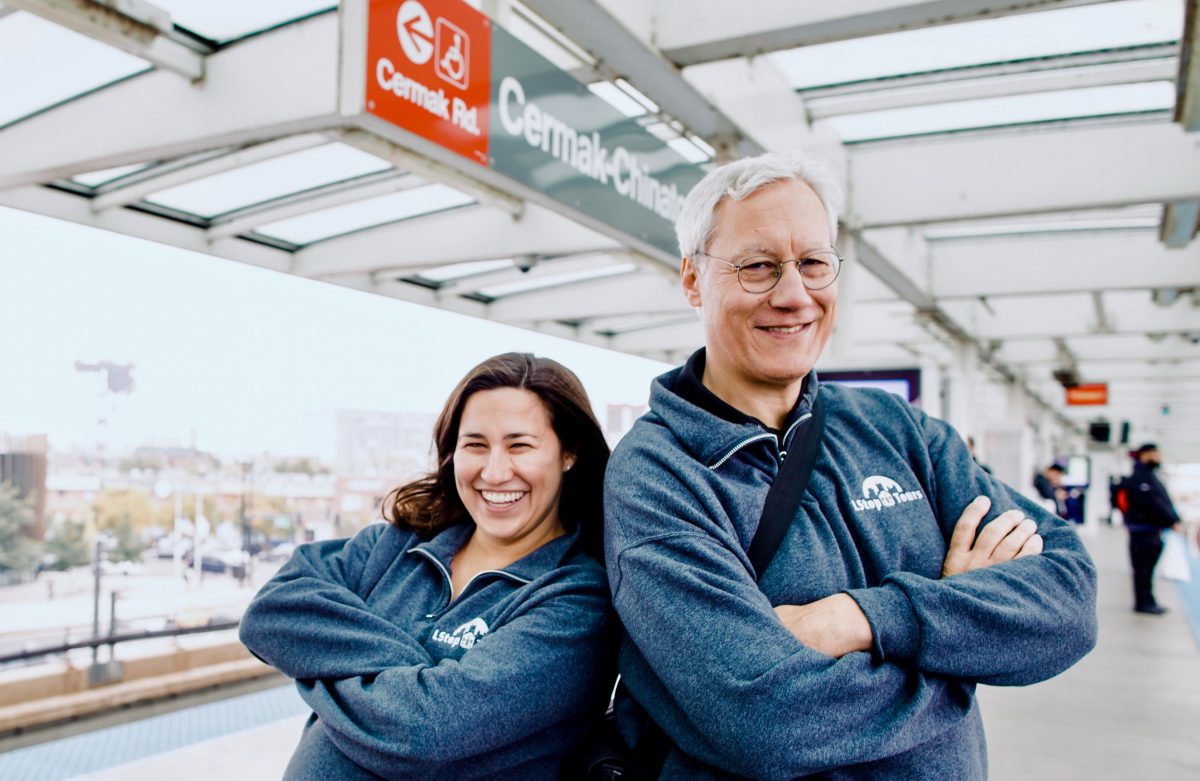
Tom Schaffner shares his Medill story, from starting his own communications firm to starting a new company with his daughter.
Why did you come to Medill for graduate school after getting an undergraduate degree in journalism from the University of Kansas, a pretty good journalism school?
I had been working for three years at an entertainment-oriented public relations firm in Chicago but wasn’t doing the kind of writing I wanted to do. I decided that the nine-month path to an MSJ at Medill was the perfect way for me transition from a non-writing job back into the world of journalism. I was told many times by teachers and journalists that an MSJ was unnecessary for someone already holding a BSJ. For me, the MSJ was a necessary step to get myself back into the world of writing and editing, something that I missed and was more comfortable with.
What was your area of concentration? Favorite courses?
My undergraduate degree at Kansas was in newswriting, so I thought I would concentrate in something different at Medill. I chose the Magazine sequence and thoroughly enjoyed Professor Peter Jacobi, his classes, teaching style and, of course, his legendary trip to New York where we visited the staffs of top magazines at their offices. I also particularly enjoyed ethics and media classes taught by Richard Schwarzlose. He would start with a simple dilemma but keep adding complications so that by the end of class, everyone saw the issue from a completely different perspective.
What was your first job after Medill?
Shortly after graduating from Medill (1980), I accepted a communications specialist position at the National Live Stock & Meat Board, a Chicago-based organization that conducted programs of research, education, advertising and promotion on behalf of the nation’s beef, pork and lamb industries. When I left six years later, I had been promoted to Director of Communications and was responsible for developing and implementing internal and external communications programs to trade and consumer audiences nationwide. I learned two very important things at the Meat Board, both of which had a profound influence on the rest of my communications career: 1) almost any transaction or project underway at a company or business organization has a communications issue at its core and 2) there is an inexhaustible need for people who know how to communicate effectively at these very same companies or organizations. These gems were the inspiration I needed to become an entrepreneur.
Before you opened Schaffner Communications, you created a newsletter called the Chicago File. Can you talk about your mission and how you did it?
When I was a freshman at Kansas (1977), I subscribed to the Chicago Daily News (newspaper) so I could keep up with everything that was happening back home. Unfortunately, the newspaper, which traveled to me via the U.S. Postal Service, usually arrived about 10 days late and came in bunches of about five or six at a time. I remember thinking at the time that there had to be a better way to keep up with news from Chicago. I filed the thought in my mind and eight years later developed and produced a sample newsletter for former Chicagoans that became known as the Chicago File (for Chicagophiles). The sample issue evolved into a monthly publication that contained news and features about what was happening in Chicago — buildings going up and coming down, the latest indicted politicians, new transit lines being contemplated and the most popular feature, a column called “Only in Chicago” which highlighted quirky events, bizarre activities and odd news items that could only happen in Chicago. Subscribers were former Chicagoans, people who no longer lived in the Chicago area but wanted to know what was going on there. At its height, the Chicago File had several thousand subscribers around the world and received a lot of coverage and publicity from major news outlets across the country. Its cult-like following and popularity was, in essence, my 15 minutes of fame. I continued to publish the Chicago File for six years and although it was breaking even financially, I decided to shut it down in 1991, literally at the dawn of the Internet. Today I am recycling much of that 35-year-old Chicago File material into an online blog for my newest entrepreneurial adventure, L Stop Tours. It’s deja vu all over again.
When did you launch your own firm?
In 1985, while still working at the Meat Board, I had the opportunity to work with first-time ever desktop publishing software and a newly invented HP laser printer. I immediately saw the future of publishing — writers, graphic designers, typesetters, layout personnel and printers could now be combined into a single person and, by so doing, could speed the publishing process and remove significant costs from the system. For someone like me who spent much of his career producing time-intensive newsletters, the new design software and printers were a game changer, they represented a tremendous new business opportunity for anyone willing to take the plunge. I decided to open a communications firm, Schaffner Communications, which was incorporated in July 1986. I was 30 years old at the time. My first corporate act? I ran out to a store and bought a Macintosh computer, Pagemaker design and graphics software, Microsoft Word 1 for the Mac, Filemaker (database software) a laser printer, a daisy wheel printer (for envelope labels) and a few other miscellaneous items for $15,000. Today, a MacBook Air laptop computer and a laser printer alone cost less than 10 percent of that amount. Too bad I couldn’t delay my purchase for 35 years — I would have saved plenty.
What was the mission of Schaffner Communications? What did your business focus on?
Schaffner Communications was designed from the get-go to be radically different than other firms in the marketplace. For starters, we positioned ourselves as a communications consulting firm and not a public relations firm because we wanted to portray ourselves as experts in the field of communications. More specifically, our area of expertise was to help businesses — large and small — build and maintain effective communication systems that delivered important and timely messages to key corporate audiences consistently, effectively and efficiently. For us, quality corporate communication belonged in the hands of skilled professional journalists — so we made it company policy to hire account personnel with only those qualifications.
How did your Medill skills contribute to the success of Schaffner Communications?
Journalists know how to write, communicate, develop creative solutions to problems, gather information, ask questions, edit copy so that reads better than the previous version, and much more. I honed all of these skills at Medill and put them to good use at my consulting firm. At Schaffner Communications, we used our journalistic skills to improve the quality of communications at businesses and corporations across the country — sharper, crisper editing of key corporate documents, improved media relations with more transparency, faster periodical production cycles with upgraded equipment and technology, increased collaboration at all levels of project management and a host of other techniques and initiatives.
You were the agency of record for a $4 billion wholesale grocery cooperative for many years. How did you not only maintain that business, but grow it? What were your secrets of success?
This Los Angeles-based firm outsourced all of their communications (internal and external) to Schaffner Communications for 19 years (1994-2013), they were one of our largest and longest-tenured clients. One hundred percent of the clients served by Schaffner Communications over the past 35 years came to us via a referral, and this particular client was no exception. We were recommended to the senior management team by friends of mine who had worked there as labor management consultants. While it’s true that quality work speaks for itself, a good referral gets you in the door and provides you with an opportunity to prove yourself over the long haul — and working anywhere over the long haul is a sure way to grow the business. Another reason we were able to hold onto this client for such a long time is because I worked hard to develop a strong, dynamic relationship with the chief executive officer of the company, as well as the senior management team. With their constant and unwavering support of our efforts, it was relatively easy to develop and maintain effective and efficient communication systems and programs throughout the company.
Can you talk about your next chapter – “L” Stop Tours? How did it come to be and how’s it going so far?
A little over a year ago, I started a new business with my daughter, Lindsay, a Chicago tour company called L Stop Tours. We’re only in our second season but already the business is tremendously successful. Our tours are different — we utilize Chicago’s elevated transit system (the “L”) to travel to interesting neighborhoods throughout the city and, upon arrival, explore the history, culture and food of the area via walking tours. We believe that you haven’t seen Chicago if you haven’t been to the neighborhoods and we are the only company in the metropolitan area that travels to these areas via the L. All of our tours start in the Loop and then head to such neighborhoods as Pilsen, the Prairie Avenue Historic District, Chinatown, Wicker Park and Fulton Market. We also have special tours that go to Andersonville, Evanston, breweries along the Blue Line and another that visits historic Chicago taverns. I do the vast majority of the tours because I love Chicago, have lived here my entire life and know a lot about city’s history, culture and traditions. At age 64 I finally found my dream job!
Photo: Tom Schaffner (right) with daughter, Lindsay McNaught, co-owners of L Stop Tours, on the El platform, of course!

Anya Cheng (IMC08)
Opportunities are there for taking for those who are ready. However, when there is no opportunity in sight, instead of waiting, you must create opportunity on your own.
Waiting for someone to open a door for you is fine, but sometimes you have to kick the door open yourself.
How did a reporter from Taiwan become the Head of Product for eCommerce apps in Silicon Valley?
How did a young, immigrant business woman, who came from a humble home, lead engineers and data scientists at Facebook, eBay and Target?
Cheng’s story tells us that if she can do it, you can do, too, as long as you learn the how-to’s and are courageous enough to fight in unconventional ways.
Listen to your heart, be open-minded about new things, grab opportunities, and know when you don’t know something. We are living in a new era that no one has ever experienced. You aren’t happy with your career? You feel lost about the future? You’re not sure how to make decisions? Don’t be afraid! We are all pioneers now, and just like the pioneers of the old days, today’s pioneers hold the future in their hands. You can build your future from scratch! If you aren’t creative and don’t define the new rules yourself, how will you overcome these new challenges?
Currently based in Silicon Valley, Cheng uses her 15 years of experience in multiple countries and of finding her first job in the U.S. during the Great Recession to advise you on how to be a maverick and pioneer, and to turn crisis into opportunity. Sometimes when you think you have no opportunities, it’s actually that you are afraid and don’t know you have options. This book reveals how Cheng built her own opportunities and career. Reading it will inspire you and help you gain the confidence and power to push through difficult times!

Employers, don’t cancel those internships — make them remote
By Melissa Santoyo (BSJ23)
When COVID-19 first hit the U.S., I was extremely fortunate that the pandemic only ruined the spring quarter of my freshman year and my summer study-abroad plans. But as a low-income, first-generation college student, I scrambled to find something to fill the few months of vacation. Because whereas my wealthier peers could probably afford to spend a summer unemployed, I am constantly racing against the clock, asking myself, “How long do I have until graduation and what can I do to make sure I’ll be hired after that?”
I am the daughter of Cuban immigrants, and I inherited their tenacity. My hunger to succeed is the product of growing up in a country that seems to constantly work against people like me. So, I scoured the internet for summer internships to keep busy, to hone marketable skills, to move forward.
After 30 emails to editors at various publications, I scored an unpaid internship — and an outside scholarship.
I know that, as a student at a private institution, I am incredibly privileged to be able to take up such a summer task. But still, I urge employers to keep internship opportunities available for students, even if they must be remote. Otherwise, as in my case, many of us wouldn’t have access to professional connections.
As a student collaborator on the well-regarded internship program at Northwestern University, I see firsthand the value of on-the-job experience. But earlier this year, when our journalism residency director Karen Springen and I started a small journalism research project called The Intern Factor, we quickly realized hands-on experience outside of the classroom is even more important than we thought. Of the 1,156 alumni of the Medill School of Journalism who responded to a short online survey, 683 gave the top rating (“very valuable”) to their internships’ ability to help them find meaningful full-time employment.
That makes it even more upsetting that many internships have been rescinded, albeit for a good reason (a global pandemic). A poll by the National Association of Colleges and Employers found that 22% of employers were revoking their offers to interns this summer, and a Yello survey found that more than a third of students said their offer was canceled.
“I can’t fathom what those students are going through now,” says Gustavo Paredes, who works in client services at a technology company and interned for a Buenos Aires newspaper in 2019 through a Northwestern University program covered by his financial aid. “My experience played a pivotal role in where I am.”
Without a college internship at what is now called Florida Today, “I wouldn’t have landed that first job,” says Northwestern alum Scot O’Hara, who currently works in financial-industry communications. “It made all the difference in the world.”
We understand why companies are canceling their summer internships. After all, hiring managers are often unsure of their own jobs and of their ability to give students a good “remote” experience.
Still, the rescinders quickly earned some bad social media PR while the keepers (including PepsiCo and Apple) earned high praise and gratitude. Paredes’ employer decided to still hire a dozen summer 2020 interns, who are working remotely. “People like myself said, ‘These internships play a pivotal role for these young adults,’” he says.
Internships are a two-way street. Young people get training, experience, connections and, in the case of journalists, published “clips.” But their older bosses arguably get even more from the deal. Their students bring fresh ideas and tech savvy, teaching their on-the-job mentors how to, say, build a line graph on a Google spreadsheet. Interns offer important insight into Gen Z tools such as TikTok and Snapchat. They also help fill in when regular employees are on vacation or family leave. And, perhaps most important, they bring the energy of youth. “I find the enthusiasm that the interns bring is even a bigger payoff,” says O’Hara. “It just revitalizes the whole department.”
Sure, coronavirus-caused remote internships aren’t ideal. It’s nicer for students to sit in person next to experienced reporters and editors, overhearing how they conduct interviews, bumping into them in the elevator and grabbing coffee with them. But the cancelers forgot that most young people are extraordinarily flexible and willing to Slack and Zoom.
My own remote internship has so far been an incredible learning experience. Not only is my work being published, but I’m learning about the intricacies of journalism outside of the Medill classroom. From hunting down PR contacts to working a 9-to-5 schedule, there are things J-school can’t teach.
“If the college curriculum gave me the basics and the tool kit, the internships gave me the opportunity to really build,” said Gina Mangieri, a TV reporter in Hawaii who holds bachelor’s and master’s degrees from Medill and completed six internships. “If you can’t actually go do it and practice it, you’re not going to learn everything you need to learn in the classroom.”
During internships, students typically discover their interests, their strengths and their passions. They learn to pitch their own ideas and to be proactive. They also learn about how corporations do (or don’t) follow their mission statements. They learn to feel more confident in their abilities. And during this short period of professional experience, they figure out what they like, and don’t like, doing.
Students often realize they love — or hate — a city like New York. They see that they like researching better than writing — or vice versa. They learn to multitask, get up early, keep to a tight schedule and talk to people. Dream jobs change. They get a clear idea of what they’d like to do after graduation. They see what matters to bosses: attention to detail, dedication, hard work.
Despite bright spots like Report for America (similar to Teach for America), there need to be more places where young people can make connections and also figure out who they are and who they want to be.
After all, soon the Class of COVID-19 and its immediate successors will be the bosses.
Melissa Santoyo is a rising sophomore at Northwestern University’s Medill School of Journalism, Media, Integrated Marketing Communications.
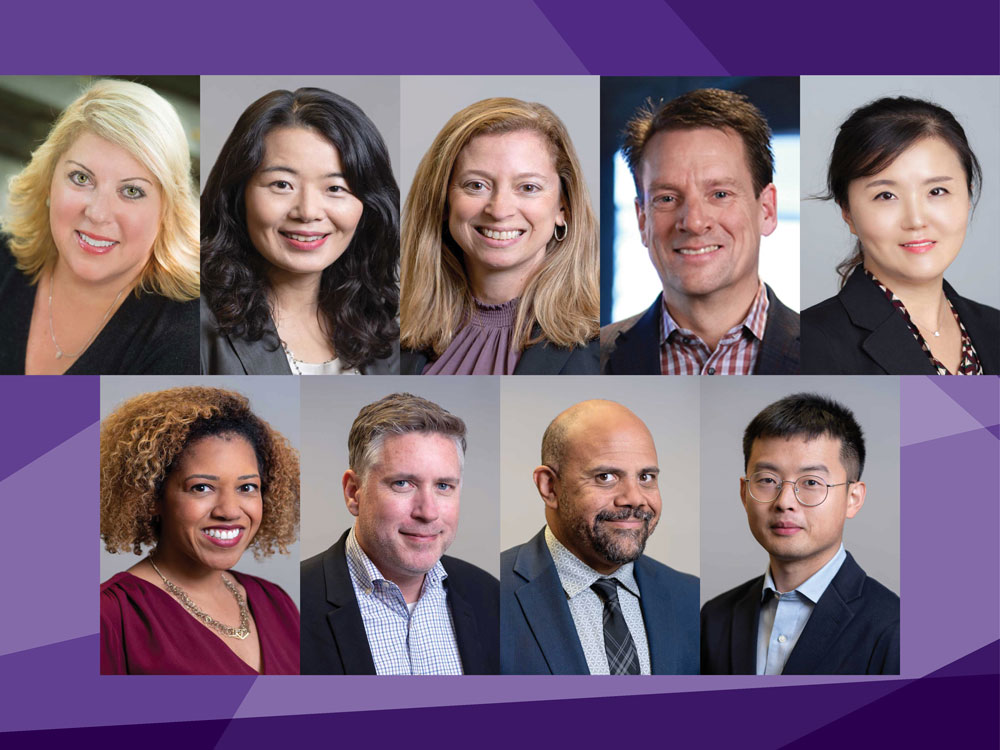
Medill welcomes nine new faculty members
Photo: Images (left to right) correspond with ordered listing.
Debbie Cenziper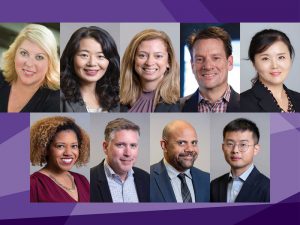
Debbie Cenziper is a Pulitzer Prize-winning investigative reporter. She will serve as associate professor and director of investigative reporting. She will also lead the Medill Investigative Lab. Cenziper has been working at The Washington Post and as an assistant professor of journalism at The George Washington University School of Media and Public Affairs.
Helen Chun
Helen Chun is an associate professor for the IMC program. Chun’s research focuses on managing and enhancing consumer experience. Her ongoing work examines technology-driven consumer insights and explores how an evolving high-tech interface disrupts traditional marketing communications. Her research papers have been published in leading marketing and services journals. She also has a courtesy appointment at Northwestern Kellogg School of Management. Chun has a Ph.D. in marketing from the University of Southern California.
Kelly Cutler
Kelly Cutler is a lecturer and director of the IMC Part-Time and Online programs. She is also the founder and CEO of Kona Company, a digital strategy firm. Cutler has more than 20 years of experience in digital marketing. Prior to founding Kona Company, she co-founded and led a Chicago-based search engine marketing firm for 11 years. She began her career working for Classified Ventures, Cars.com and AOL.
Greg Green
Greg Green joins our faculty as a Lecturer for the IMC program. Green’s background includes leadership roles in Marketing Analytics, Research and Consumer Insights focused on Digital Media and Marketing with companies such as PwC, Publicis, and Google. He specializes in extracting the untapped value in research and corporate data, focused on creating data driven decisioning cultures at the intersection of creativity and analytics. Green has a Ph.D. in Mathematics from Claremont Graduate University in California.
Eunhee Emily Ko
Eunhee (Emily) Ko is an assistant professor of IMC. Her research interests span online marketing and user-generated content as well as applications of machine learning and econometric methods. She earned her master’s in analytics from Northwestern McCormick School of Engineering, and her Ph.D. in marketing from Emory University.
Arionne Nettles
Arionne Nettles will be responsible for Medill’s publishing platform, Medill Reports, and serve as a lecturer. Nettles has been a digital producer for WBEZ, Chicago’s NPR affiliate, as well as an adjunct lecturer at Medill. Before her work at WBEZ, Nettles was a multiplatform editor for the Associated Press and the digital editor for the Chicago Defender.
Matthew Orr
Matthew Orr joined the faculty as assistant professor in January. Based in Washington, D.C., he will support Medill’s video and broadcast productions. Orr serves as the director of multimedia and creative at STAT News and is an award-winning journalist and filmmaker with nearly 20 years of experience in the industry. Before joining STAT, he worked at The New York Times for 13 years as a senior video producer and reporter.
Steven Thrasher
Steven Thrasher is the inaugural Daniel H. Renberg Chair and an assistant professor of journalism. He will focus on social justice reporting and issues relevant to the LGBTQ community. Thrasher has worked as writer-at-large at The Guardian, staff writer at the Village Voice and facilitator for the NPR StoryCorps project. His articles are regularly published in The New York Times, BuzzFeed News, Esquire, The Nation, The Atlantic, The Guardian and The Daily Beast. He has a Ph.D. in American studies from New York University.
Yu Xu
Yu Xu is an assistant professor in IMC. He specializes in the intersection of organizational communication, networks, technology, strategy and computational social science. His current research investigates ecological and evolutionary foundations of behavioral and network change, especially in the context of digitally mediated communities. Xu has a Ph.D. in communications from the University of Southern California.
Prof. David Abrahamson Retires 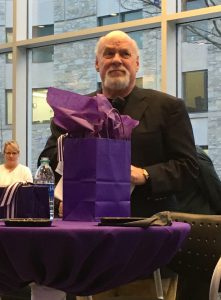
The founder of Medill’s Literary Journalism seminar, Abrahamson celebrated his retirement from Medill after 26 years on the faculty at a full-house send off on Jan. 29, 2020 at the McCormick Foundation Center in Evanson. Abrahamson taught long-form writing and magazine editing and was the co-director of the graduate Magazine Publishing Project.
While at Medill, Abrahamson was the general editor of a 40-volume historical series, “Visions of the American Press,” published under the Medill imprint by the Northwestern University Press. With more than 20 years of experience as a magazine writer, editor and management consultant, Abrahamson’s background includes senior editorial positions at a number of national consumer magazines, including Car and Driver and PC/Computing. He is the author of “Magazine-Made America: The Cultural Transformation of the Postwar Periodical,” an interpretive history of the magazine profession in the last half of the 20th century, and editor and co-editor of two definitive anthologies of magazine scholarship, “The American Magazine: Research Perspectives and Prospects” and “The Routledge Handbook of Magazine Research: The Future of the Magazine Form” (forthcoming). Raised in Annapolis, Maryland, Abrahamson holds a B.A. in History from Johns Hopkins University (1969), a Master’s degree in Journalism from the University of California, Berkeley (1973) and a Ph.D. in American Civilization from New York University (1992).
NPR’s Antonia Cereijido named inaugural Cecilia Vaisman award winner by Medill, NAHJ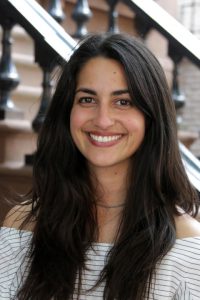
Audio journalist Antonia Cereijido (BSJ14) has been selected as the first recipient of the Cecilia Vaisman Award for Multimedia Reporters. The award is a partnership between Northwestern University’s Medill School of Journalism, Media, Integrated Marketing Communications and the National Association of Hispanic Journalists.
Cerejido visited Medill Nov. 5, 2019 and spoke to Medill students, faculty and the NU community at Harris Hall.
Cereijido is an award-winning producer at NPR’s Latino USA where her coverage has included a profile of the Mexican-American man who became wealthy by building controversial shelters housing migrant children, a meditation on whether Latinos cry more on average, and a historical and feminist analysis of Mattel’s Frida Kahlo “Barbie.”
Members of the award selection committee, which included NAHJ Chicago and student chapter members, along with Medill representatives, selected Cereijido based on her body of work, as well as her willingness to mentor students, speak in classes and serve as a role model. The award, which will be given annually, includes a $5,000 cash prize. Cereijido will visit Medill in November to talk about her audio journalism work with students, faculty and the community.
The award is named in memory of Vaisman, a Medill associate professor who was a leader in audio journalism and a member of NAHJ. The award recognizes Latinx and Hispanic audio and video journalists who bring light to the issues that affect the Latinx and Hispanic communities in the U.S. and around the world.
Cereijido is an alumna of Medill where she had Vaisman as a professor. “Through Cecilia’s guidance, I learned of stories that rejected tropes that portray immigrants as one dimensional and showed how immigrants could make art of their lives by daring to envision new futures. She was a fierce advocate for quality and thoughtfulness,” said Cereijido. “At the editing phase of every story I produce, I wonder what she could take issue with or what other sources she would suggest … I am deeply honored to be given this award and am very grateful to both Medill and NAHJ.”
Cereijido was a USC California Health and Institute for Justice and Journalism Fellow. She was the co-host of The Payoff, a podcast about personal finance for millennials from Mic.com, a guest on Buzzfeed’s Another Round and on Slate’s Represent. She also hosted a Twitter exclusive video for the History Channel. She has interpreted for This American Life and Love + Radio.
Mark Trahant (Shoshone-Bannock) is the winner of the 2019 NAJA-Medill Milestone Achievement Award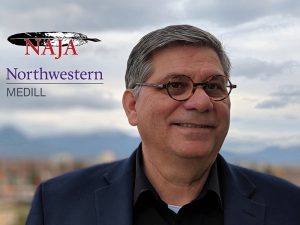
The Native American Journalists Association (NAJA) and Northwestern University’s Medill School named Mark Trahant (Shoshone-Bannock) the 2019 NAJA-Medill Milestone Achievement Award recipient.
The award honors an individual who has had a lasting effect on media to the benefit of Indigenous communities. The award is given jointly by the Native American Journalists Association and the Medill School of Journalism, Media, Integrated Marketing Communications. The award celebrates responsible storytelling and journalism in Indian Country.
Trahant is editor of Indian Country Today. He reflected on the first tribal editor, Elias Boudinot (Cherokee), the namesake for another of NAJA’s top awards, when reflecting on the standard for Indigenous journalism.
“[Boudinot] described his paper as ‘a vehicle of Indian intelligence.’ Even though ink has been replaced by pixels; the task remains the same – to publish an informative daily account that’s comprehensive and adds context to the stories missing from the mainstream media.
“We have so many stories to tell. Our mission is simple but important: Solid, factual reporting. Great writing. Photography that inspires and records. Provide a real service to readers across Indian Country’s digital landscape,” Trahant said.
Trahant previously served as editorial page editor of The Seattle Post-Intelligencer and worked for the Arizona Republic, Salt Lake Tribune, Seattle Times, Navajo Times Today and Sho-Ban News.
He has been a reporter for PBS Frontline, publishing “The Silence,” which detailed sexual abuse by priests in an Alaska Native village.
Trahant is known for his election reporting in Indian Country, developing the first comprehensive database of American Indians and Alaska Natives running for office. His research has been cited in publications ranging from The New York Times to The Economist to Teen Vogue.
During the 2018 election, Trahant launched a journalism initiative and as a result, more than 40 Native media professionals conducted the first ever live coverage of election night. Six hours of TV programming was produced at the First Nations Experience | FNX studios in California and viewers were able to get reports about the dozens of Native candidates running for office during this election, which included the first two Native American women voted into Congress.
Trahant was recently elected as a member of the American Academy of Arts and Sciences and has been a professor at the University of North Dakota, the University of Alaska Anchorage, the University of Idaho and the University of Colorado.
The award includes a $5,000 cash prize and an invitation to the recipient to speak with Medill students and faculty on campus in Evanston, Illinois, to further advance the representation of Indigenous journalists in mainstream media.
New fellowship from Medill and The Garage aims to increase diversity among media entrepreneurs
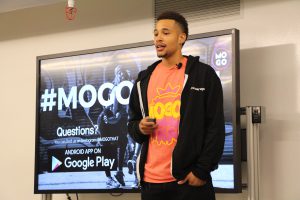
A new fellowship for entrepreneurs working on media and media-related endeavors is being launched by Northwestern University’s Medill School of Journalism, Media, Integrated Marketing Communications in partnership with The Garage, NU’s entrepreneurial incubator.
The one-year fellowship will identify and support entrepreneurs from underrepresented groups—with an emphasis on women and people of color—who are working on innovation in the media industry.
The fellow will receive an $80,000 stipend for the year, and access to a variety of resources across Northwestern. The fellow also will be able to participate in select classes at Medill and in other areas of the University, and will be an active participant in both the Medill and The Garage communities.
The Garage is an 11,000 square foot space that brings together a cross-disciplinary community of students, faculty, staff and alumni who share a passion for developing ideas. Currently home to more than 60 student-founded startups and projects, the co-working space provides cutting edge technology resources, special programming and mentorship from accomplished entrepreneurs.
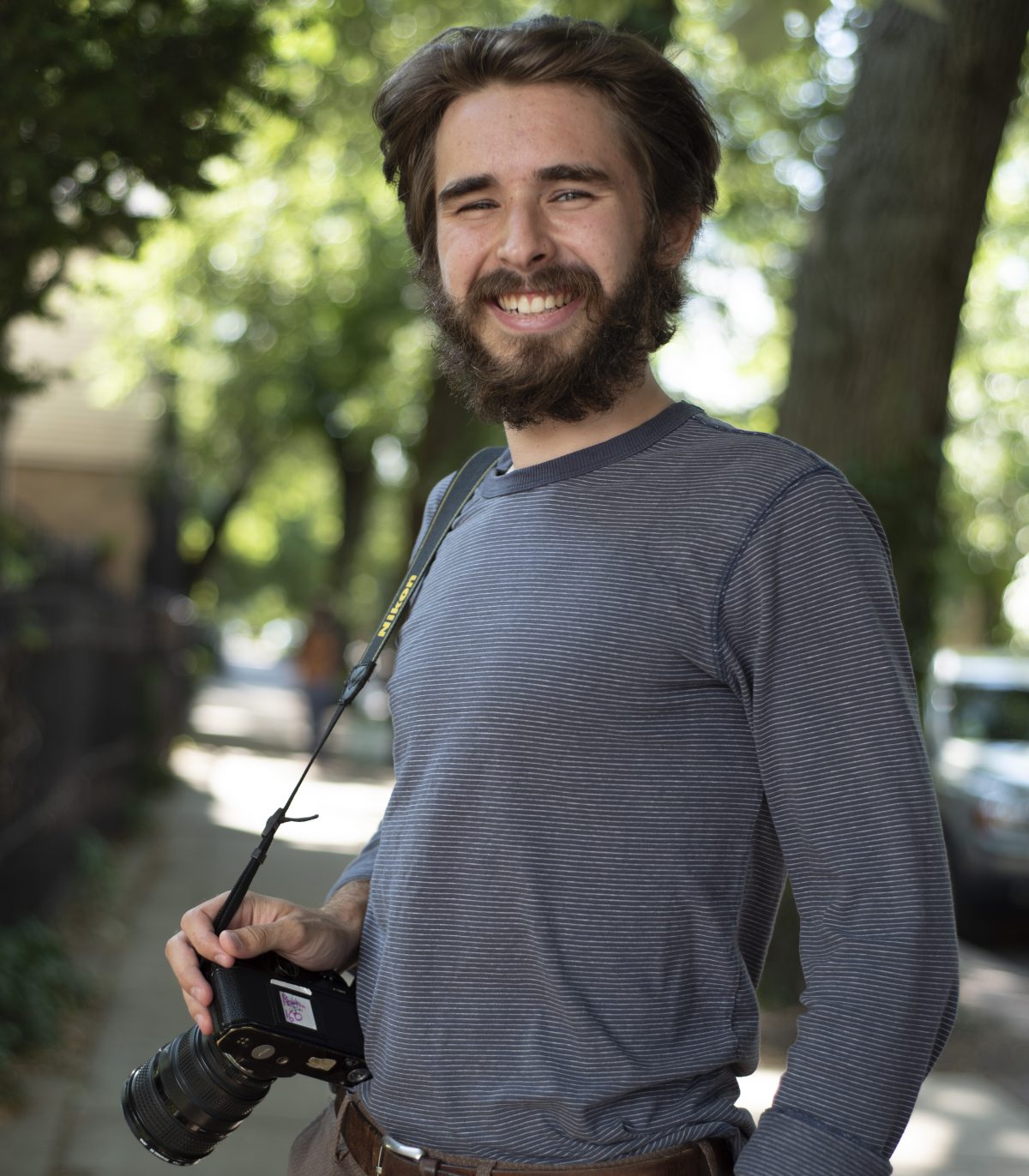
After freelancing for Block Club Chicago while completing his Master’s Degree at Medill, Colin Boyle accepted a full-time position with the non-profit, subscription-based news outlet at the end of November 2020.
“I can’t wait to get back to serving my hometown through visual reporting and connecting with my neighbors across Chicago,” Boyle said. Boyle, a life-long Chicagoan, completed his undergraduate studies in journalism and Spanish at Medill and received an MSJ in video & broadcast journalism.
Throughout his time at Northwestern, Boyle served as photo editor for The Daily Northwestern for six consecutive quarters, co-writing a months-long investigative piece about educational and racial disparities in Evanston’s Fifth Ward. He has interned with The Chicago Sun-Times, Milwaukee Journal Sentinel, and most recently at IndyStar as a Pulliam Fellow. In 2019, Boyle completed his journalism residency at Infobae in Buenos Aires, Argentina, covering social unrest and daily news as a photojournalist.
Dead Reckoning
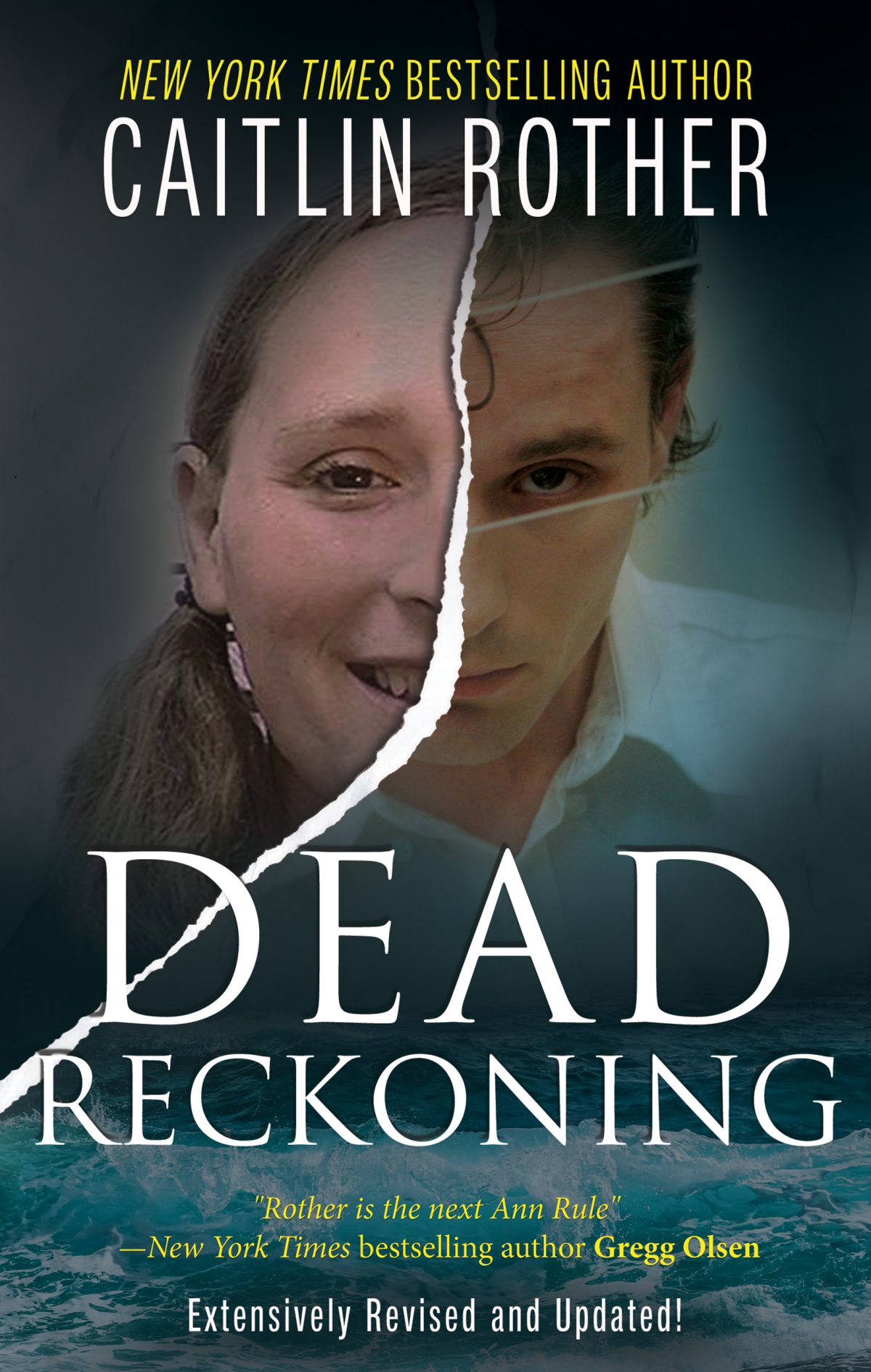
Caitlin Rother (MSJ87)
Tom and Jackie Hawks loved their life in retirement, sailing on their yacht, the Well Deserved. But when the birth of a new grandson called them back to Arizona, they put the boat up for sale. Skylar Deleon and his pregnant wife Jennifer showed up as prospective buyers, with their baby in a stroller, and the Hawkses thought they had a deal. Soon after a sea trial and an alleged purchase, however, the older couple disappeared and the Deleons promptly tried to access the Hawkses’ bank accounts.
As police investigated the case, they not only found a third homicide victim with ties to Skylar, they also uncovered an unexpected and unusual motive: Skylar had wanted gender reassignment surgery for years. By killing the Hawkses with a motley crew of assailants and plundering the couple’s assets, the Deleons had planned to clear their $100,000 in debts and still have money for the surgery, which Skylar had already scheduled.
Now, in this up-to-the-minute updated edition of DEAD RECKONING, which includes extensive new material, New York Times bestselling author Rother presents the latest breaking developments in the case. Skylar, who was ultimately sentenced to death row for the three murders, transitioned to a woman via hormones while living in the psych unit at San Quentin prison. Recently, she legally changed her name and gender to female, apparently a strategic step in her quest to obtain taxpayer-subsidized gender confirmation surgery and transfer to a women’s prison. Combined with Governor Gavin Newsom’s recent moratorium on executions, this only adds insult to injury for the victims’ families, who want Skylar to receive the ultimate punishment for her crimes.
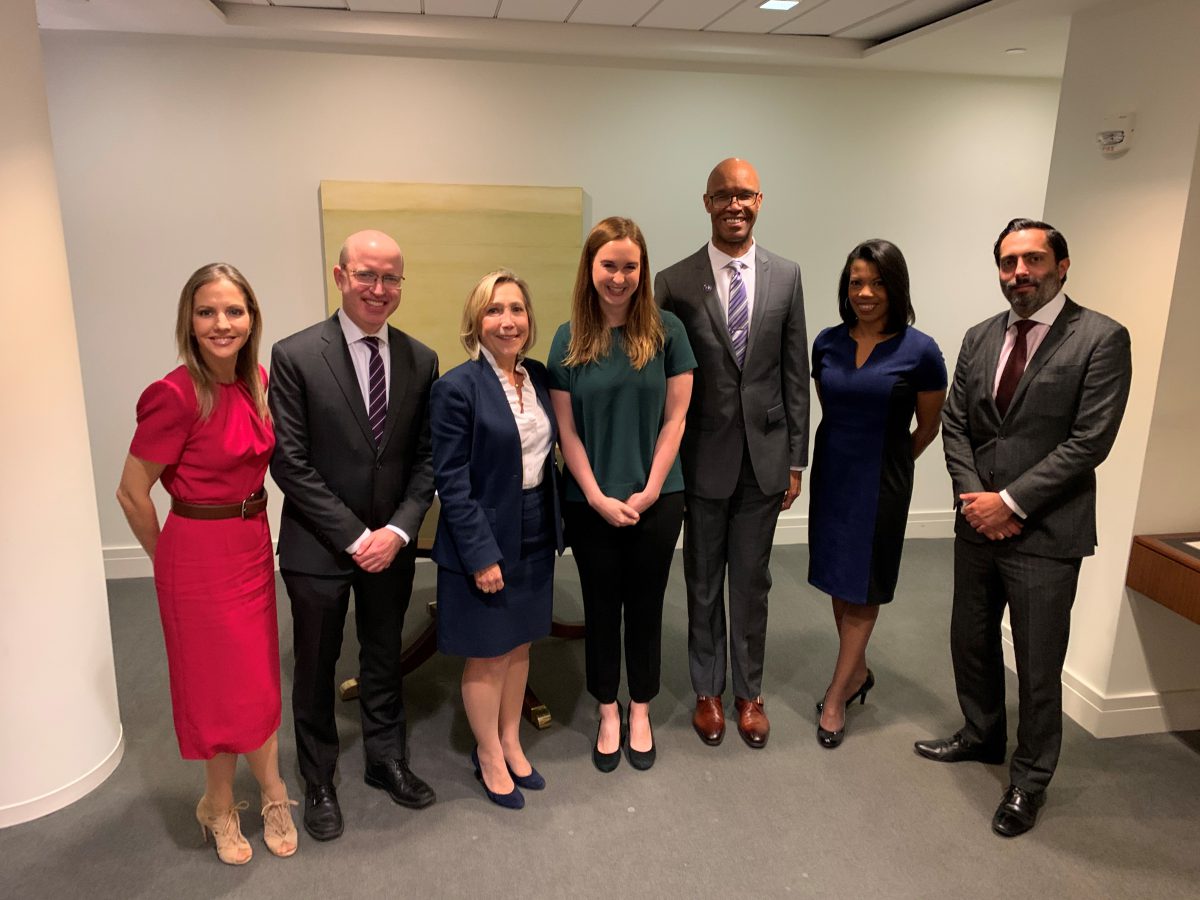
- Rafael Bernal (MSJ ’13) – Staff Writer, The Hill
- Nikole Killion (BSJ/MSJ ’99) – Correspondent, CBS News
- Michelle Kosinski (BSJ/MSJ ’95) – Senior Diplomatic Correspondent, CNN
- Jeff Mason (BSJ ’98, MSJ ’99) – White House Correspondent, Reuters
- Elena Schneider (BSJ ’13, MSJ ’14) – National Political Reporter, POLITICO
e editors now use Lorem Ipsum as their default model text, and a search for ‘lorem ipsum’ will uncover many web sites still in their infancy. Various versions have evolved over the years, sometimes by accident, sometimes on purpose (injected humour and the like).